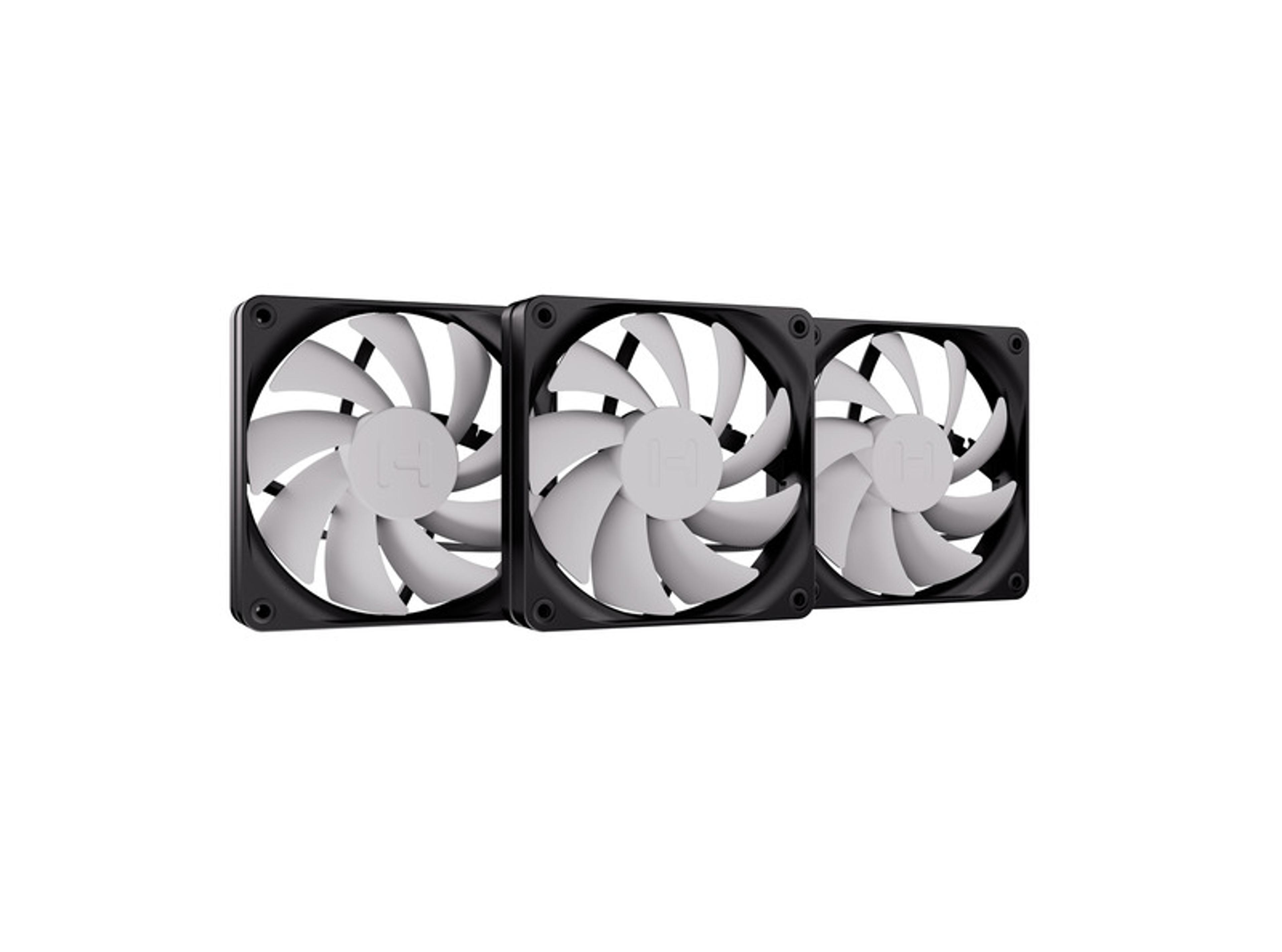
Noise Reduction: Making Your PC Build Quieter
Building your PC is exciting because it can be customized to meet your needs and aesthetics. When creating a gaming PC, though, one factor often overlooked is noise. The hum of fans, the whir of hard drives, and the buzz of components can turn a high-performance build into a nuisance.
Noise reduction in a PC can take two forms: sound damping and silencing the sound completely. PC sound damping focuses on simply lessening the existing sounds, such as adding rubber isolators on a fan. However, you could also run the fan at a lower speed or remove the fan altogether and replace it with a liquid cooling system to get rid of the noise.
Knowing how to dampen the typical PC sounds from specific components can help with this issue. This guide discusses the techniques and materials necessary to make a PC quieter by damping sound and eliminating noise altogether.
What Component Features Should I Look for to Make My PC Quieter?
Achieving a quiet PC build involves selecting the right components with good reduction features. Here’s what you need to consider for each component:
- PC Case: When figuring out how to sound dampen a PC case, look for features such as rubberized sound-deadening material adhered to large metal panels and a somewhat closed environment to reduce airflow noise.
- Fans: Choose fans featuring larger blades that move more air at lower speeds.
- Rubber or Silicone Fan Mounts: Instead of traditional screws, using rubber or silicone mounts reduces vibration noise.
- CPU Coolers: Look for CPU coolers featuring larger heatsinks and quieter fans.
- Thermal Paste: High-quality thermal paste improves heat transfer for a quiet cooler.
- Graphics Card (GPU): Search for graphics cards with large, quiet fans or passive cooling (no fans at all).
- Power Supply Unit (PSU): Select a PSU with more efficient fans or a fanless design.
- Acoustic Foam Panels: Install acoustic foam panels inside your PC case to absorb and block noise, but don’t obstruct the airflow.
- Fire-Rated Foam: For additional safety and sound damping, fire-rated foam can provide extra soundproofing.
If your PC is still too loud, try soundproofing your environment by placing acoustic foam panels around the room to block noise. Also, try positioning your PC case under or behind furniture that can absorb sound.
How to Sound Dampen a PC Case
As you start building your new PC with sound-damping features or updating your current setup, there are certain things you can do to further soundproof your PC case.
Give the PC Case Good Airflow
A quiet PC case should provide excellent airflow to keep components cool and avoid overheating. Look for cases designed with decent airflow, such as those with multiple fan mounting points and well-placed vents.
You can also use components that generate less heat, as less heat means less need for aggressive cooling. To reduce heat production, focus on a CPU, GPU, and power supply that runs efficiently.
Sizing and Cooling Options
Select the appropriate case size for your components. Larger cases typically offer better airflow options and more room in your PC case for sound-damping materials. A roomier case also means more room for additional fans or liquid cooling solutions to manage heat without excessive noise.
Look for Noise Reduction Features
Check if the case has adequate drive bays for your needs, with noise-reducing mounts for hard drives to minimize vibrations. You can also install acoustic foam panels inside the PC case for increased sound-damping. Strategically place these panels to cover large metal surfaces and around noise-generating components.
Aside From the PC Case, How Else Do I Make My Computer Quieter?
If you’ve soundproofed your PC case and are still wondering how to make your PC even more silent, there are plenty of other ways. Focus on components that can make a lot of noise, such as the hard drive and fans.
How to Make a Hard Drive Quieter
Even though modern hard drives are quieter, their high-speed spinning can still be noisy. The best way to make your PC quieter is to place soft material between the hard drive and the PC case to prevent metal-to-metal contact.
Typically, a louder hard drive is a very high-capacity model that produces a decent amount of heat. When making the hard drive quieter, avoid using foam, as it can cause overheating or significantly shorten its lifespan. Instead, place damping material on the drive mounting points where they mechanically attach to the case.
No matter what you choose, make sure everything is installed correctly and maintains adequate airflow to avoid compromising performance.
How to Make a PC Fan Quieter
PC fans are crucial for system cooling but can make a lot of noise. If you want to know how to make your PC practically silent, limit the number of fans in your PC case by installing larger fans. You should also perform fan maintenance to keep them clean and working correctly.
Add fan controls for efficient cooling and noise reduction when building your PC. Many motherboards allow fan speed control via BIOS settings or software, so you can adjust these settings to lower the fan speed. Using dynamic fan speed controls based on temperature sensors means fans run faster when the system gets hot and slow down when it cools off, reducing noise during low-load periods.
Regular fan cleaning and maintenance are vital to make your PC quieter. Dust and debris can clog fans and air filters, making them work harder and produce more noise. To regularly clean your PC's fans and filters, use compressed air to blow out dust from the blades and surrounding area. Be gentle to avoid damaging the components.
Where to get Your PC Components
Are you looking for the best components to make your PC quieter while running smoothly? Then check out HYTE’s selection of hardware and PC accessories.
精選文章

Black Friday Gaming Gear & PC Deals 2025
HYTE Black Friday sales are here, and we’re excited to share the amazing deals we’ll be offering this year! Our Black Friday sales event is your chance to save big on some of our most popular products. From November 20th through December 2nd, enjoy incredible discounts on PC cases and gaming accessories that bring both performance and style to your setup. If you’re looking to upgrade, now’s the perfect time to do it with HYTE.

Official HYTE x Honkai: Star Rail Firefly Collection!
The stars have aligned, and the Official HYTE x Honkai: Star Rail Firefly Collection is ready for launch.

HYTE's 4th Anniversary Sale!
We’ve come a long way, and it’s all thanks to you! To celebrate HYTE’s anniversary, we’re giving back with a limited-time Anniversary Sale from Oct. 5 to Oct. 7.

HYTE X50 & X50 Air Pre-Orders Are Now Live!
The X50 redefines typical PC cases with a unique curved design and performance-driven elements. Pre-order the X50 and X50 Air NOW!
